What Bangladesh can learn from Argentina’s struggle with enforced disappearance
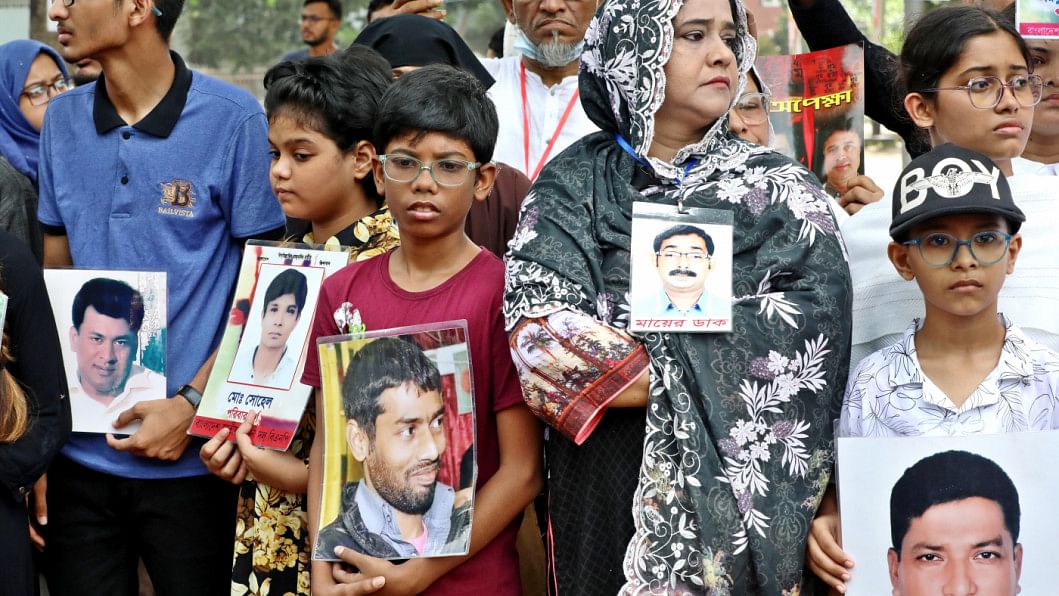
In Bangladesh, Argentina is more than just a footballing nation; it's a symbol of passion, resilience, and shared identity. The famous "Hand of God" moment and Maradona's dazzling 1986 World Cup victory are still celebrated with immense enthusiasm. But beyond the footballing legacy, there's another connection between the two nations—a shared pain and sorrow that ties them together in ways most would never expect.
Between 1976 and 1983, Argentina endured one of the darkest periods in its history, known as the "Dirty War" (Guerra Sucia in Spanish). The country was ruled by a military junta that used brutal tactics to eliminate perceived threats. Thousands of citizens, including political activists, intellectuals, union leaders, and students, were disappeared without a trace. These individuals, often the brightest and most outspoken members of society, were subjected to torture, imprisonment, and death. Their families, left in torment, had no idea whether their loved ones were alive or dead. This led to a profound trauma that still echoes in Argentina today.
In many ways, Bangladesh's modern-day struggle mirrors this painful past. Since Sheikh Hasina assumed power in 2009, Bangladesh has seen a troubling rise in cases of enforced disappearances and extrajudicial killings, particularly between 2009 and 2022. Human rights organisations estimate that more than 3,000 people have vanished over the last decade, many of them political activists, journalists, and ordinary citizens who dared to challenge the government. The tactics used by Bangladesh's security forces, especially the Rapid Action Battalion (Rab), are chillingly similar to those of authoritarian regimes, with violence wielded as a tool of political control. The Digital Security Act, introduced in 2018, further silenced dissent by criminalising free speech, in essence, and empowering the government to target critics.
Although the political contexts in Argentina and Bangladesh differ in many ways, both countries have been profoundly impacted by authoritarian rule and the heavy human cost of enforced disappearances. However, the paths they have taken to address these abuses and the extent to which justice has been served are markedly distinct.
After the fall of Argentina's brutal military dictatorship in 1983, the country began the long and difficult process of confronting its past. One of the most significant steps was the formation of the National Commission on the Disappearance of Persons (CONADEP), which investigated the forced disappearances and human rights violations committed during the dictatorship. Their report, Nunca Más ("Never Again"), was a landmark document that detailed the scale of the atrocities and gave voice to the victims' families. For the first time, the suffering was acknowledged, and the public could no longer ignore the truth.
In the years that followed, Argentina took important steps toward achieving justice. Laws that had previously shielded military officials from prosecution, such as the Full Stop Law and the Law of Due Obedience, were repealed in 2003. In the subsequent years, former military officers were put on trial, and some were convicted of crimes against humanity, including torture, forced disappearances, and murder. While justice was delayed, it wasn't denied. The Mothers of the Plaza de Mayo, a group of mothers whose children had disappeared during the dictatorship, became a powerful symbol of resistance, relentlessly demanding truth and accountability. Their courage and determination brought the issue of human rights violations to the forefront, forcing Argentina to reckon with its past.
In contrast, Bangladesh's struggle with enforced disappearances remains largely unresolved. In 2024, after the fall of Sheikh Hasina's government, an interim administration led by Muhammad Yunus signed the International Convention for the Protection of All Persons from Enforced Disappearance (ICPPED). Later, a commission of inquiry into the disappearances was established. While this is a positive step, it remains to be seen whether the commission will be independent enough to carry out its work without political interference. Moreover, ensuring that the victims' families receive reparations and recognition for their suffering will be crucial if any real healing is to occur.
The families of the disappeared in Bangladesh, much like the Mothers of the Plaza de Mayo, have refused to stay silent. Through the Mayer Daak movement, they have taken to the streets, demanding answers and justice. These families, most of them mothers and wives, have been vocal about their pain, their hopes, and their grief. They continue to march, protest, and speak out, hoping that one day, they'll get the closure they so desperately need. But their struggle has not been met with the same level of national support or legal recourse that Argentina's victims received.
The Mayer Daak movement in Bangladesh has emerged as a powerful symbol of resistance, not just to the state's systematic efforts to suppress dissent, but also to the culture of impunity that allows the state's security forces to operate with minimal accountability. Like the Mothers of the Plaza de Mayo in Argentina, the Mayer Daak group has demanded justice for the victims of forced disappearances, courageously standing up against the government's repression and the silence that surrounds these atrocities.
Despite the intense political and legal obstacles, they face, the Mayer Daak movement continues to gain momentum. The group's members, many of them mothers, sisters, and wives have become the public face of resistance. Their constant presence at protests and public demonstrations is a testament to their refusal to let the truth be buried. Through their tireless efforts, the Mayer Daak movement has kept the issue of enforced disappearances in the national conversation, pushing for recognition of the victims and accountability for the perpetrators.
Bangladesh has not yet seen the same level of institutional reforms as Argentina, such as the creation of a national truth commission. However, the activism by Mayer Daak has the potential to spur a broader movement for justice, one that might eventually lead to formal inquiries, legal accountability, and reparations for the families of the disappeared. The group's insistence on truth and justice offers a glimmer of hope in the face of a long history of government oppression.
Both Argentina and Bangladesh have suffered through brutal authoritarian regimes that used forced disappearances and extrajudicial killings to maintain control. Argentina's eventual commitment to justice, accountability, and truth has allowed the country to begin the healing process.
With the right commitment and action, there is hope that Bangladesh can take meaningful steps toward healing, and the painful legacy of enforced disappearances can eventually be addressed. By learning from Argentina's example and ensuring accountability, recognition for the victims, and a genuine process of truth-telling, Bangladesh has the potential to move forward. While the journey may be long, it is not without hope. In time, the families of the disappeared may find the justice and closure they deserve, and the country as a whole can begin to heal from this dark chapter.
Barrister Md Zahid Hasan Akhand is a human rights lawyer, activist, and founder and head of Akhand and Associates.
Views expressed in this article are the author's own.
Follow The Daily Star Opinion on Facebook for the latest opinions, commentaries and analyses by experts and professionals. To contribute your article or letter to The Daily Star Opinion, see our guidelines for submission.

 For all latest news, follow The Daily Star's Google News channel.
For all latest news, follow The Daily Star's Google News channel. 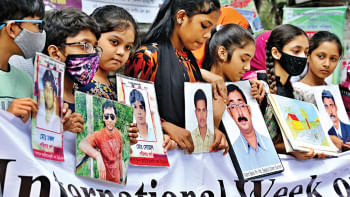

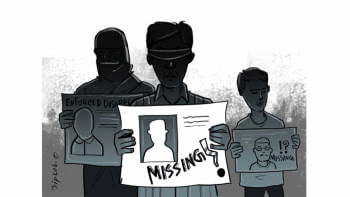
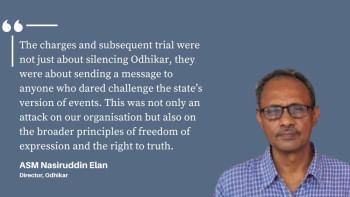



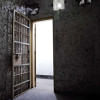

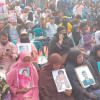
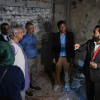


Comments